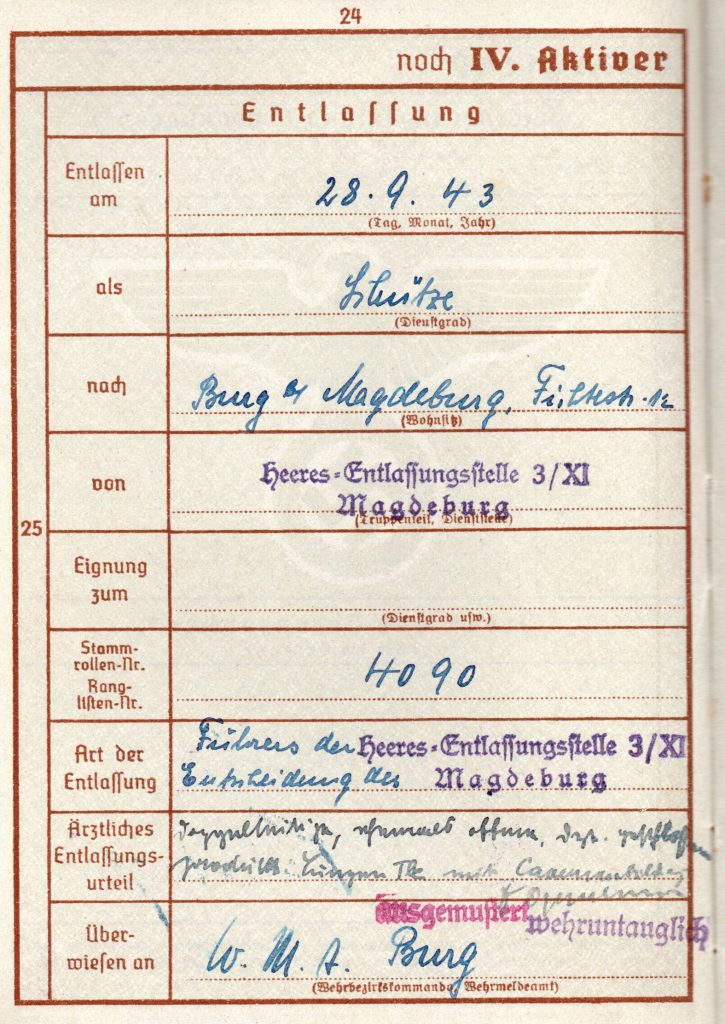This man’s name was Willy Krinscher.
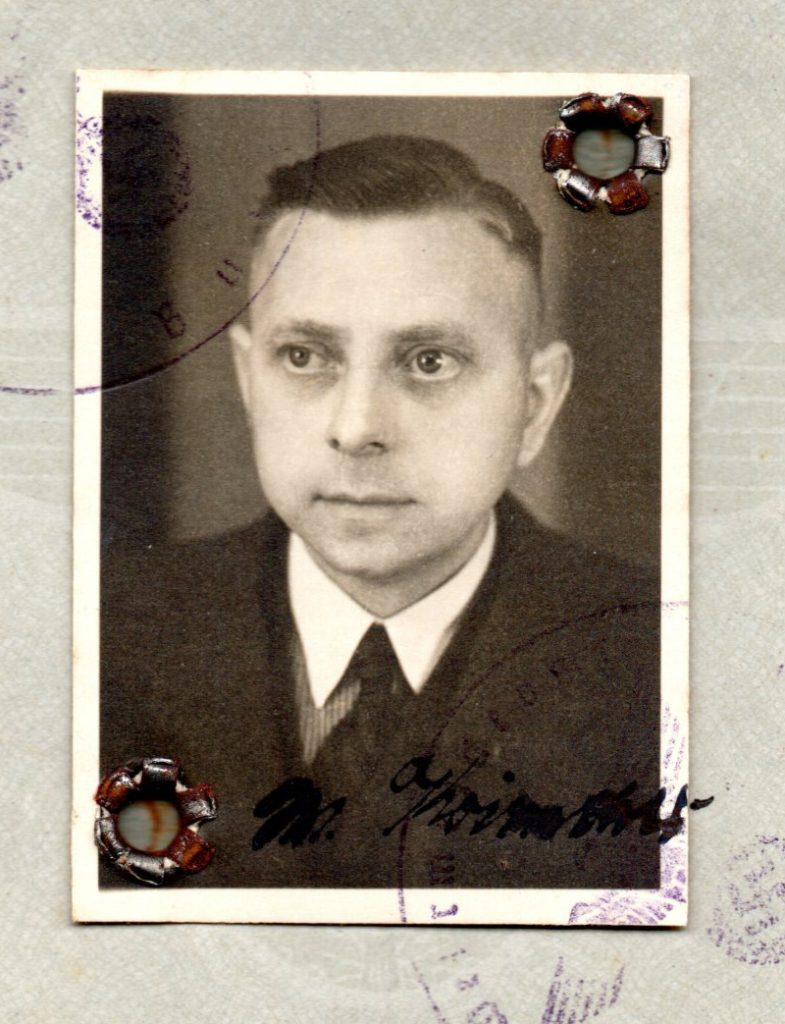
This was his Wehrpass.
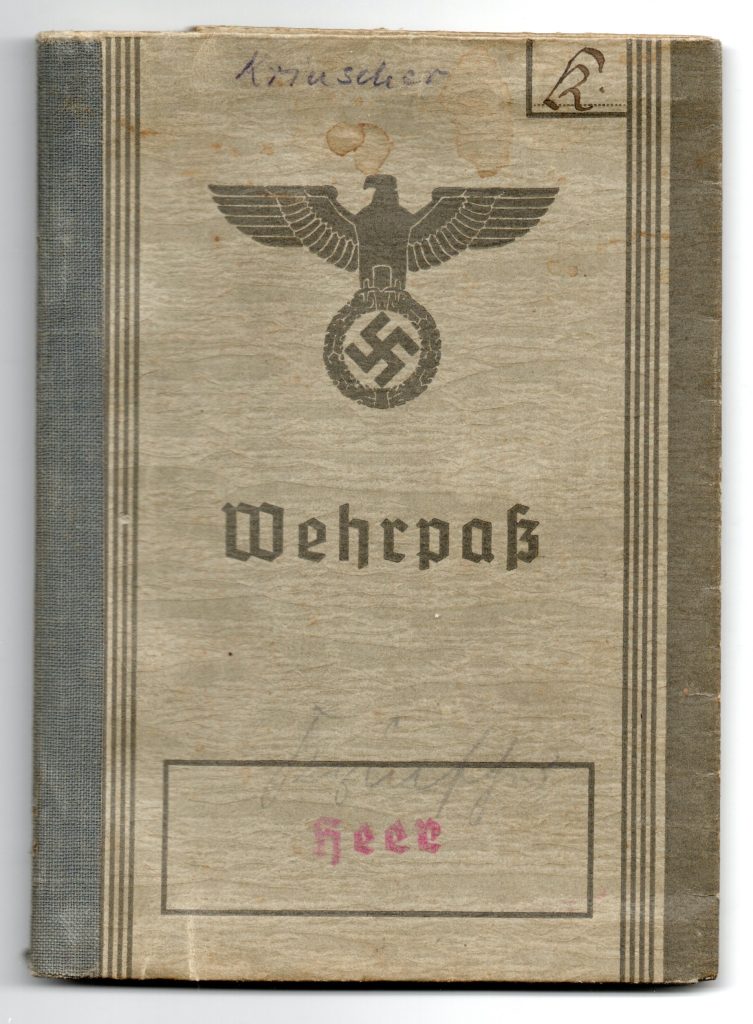
He was born in 1904 in the north German town of Burg, near Magdeburg. He was married.
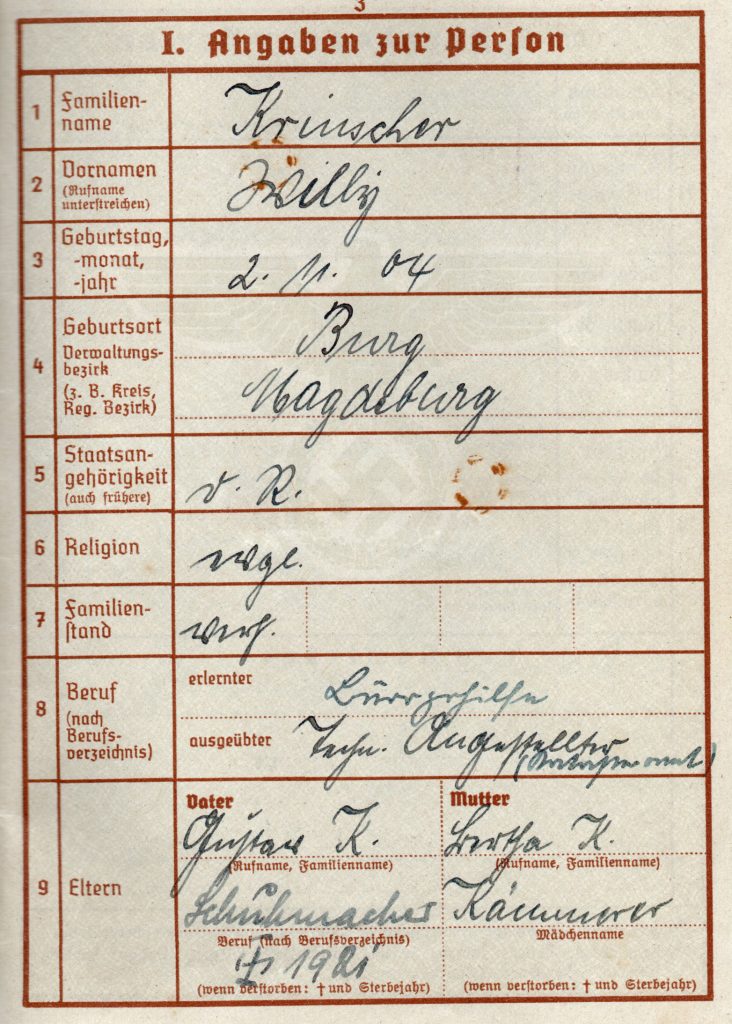
He was drafted in June, 1942, when he was 37, he was drafted. His initial training was in Landesschützen-Ersatz-Bataillon 11, in Hildesheim. He swore an oath of allegiance to Adolf Hitler, as was mandatory for all servicemen in the German armed forces.
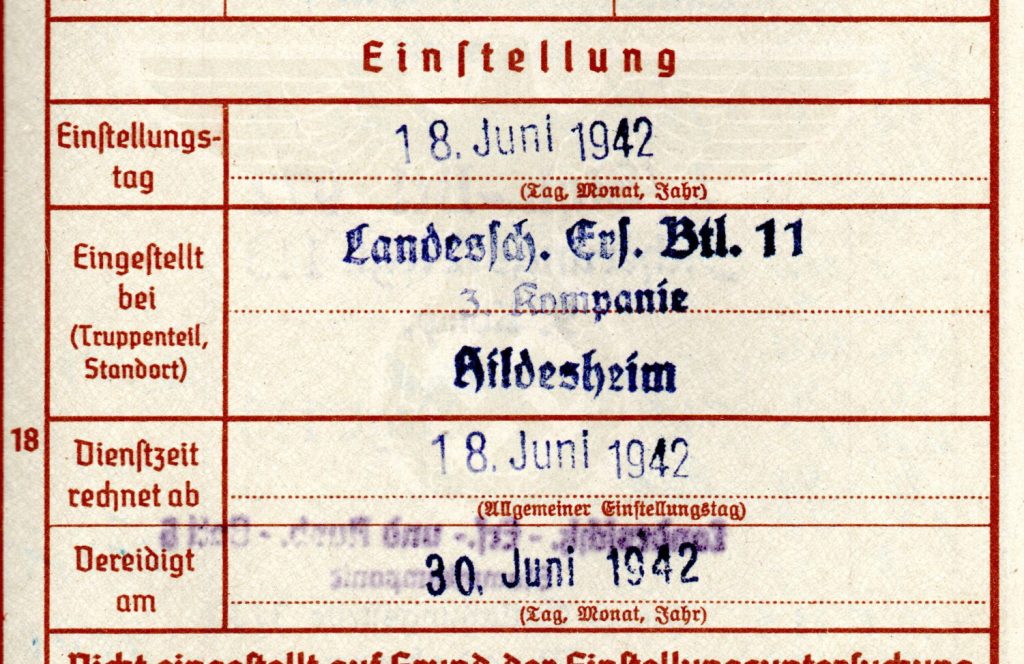
He was trained on the Gewehr 98 rifle.
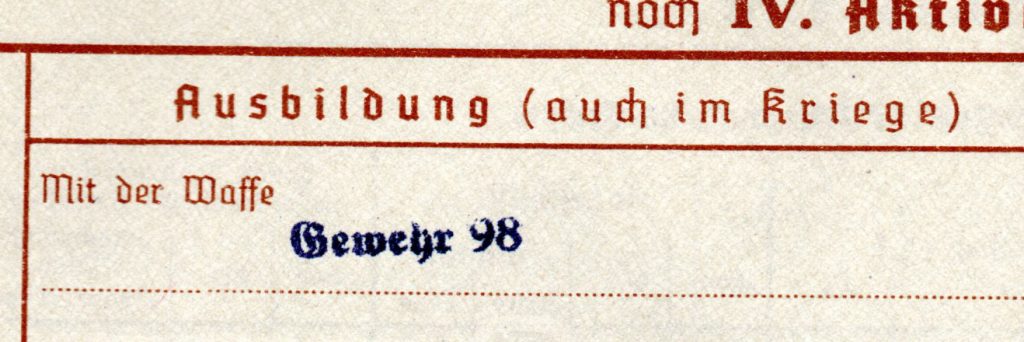
This page in Krinscher’s Wehrpass shows the military units to which he was assigned during WWII.
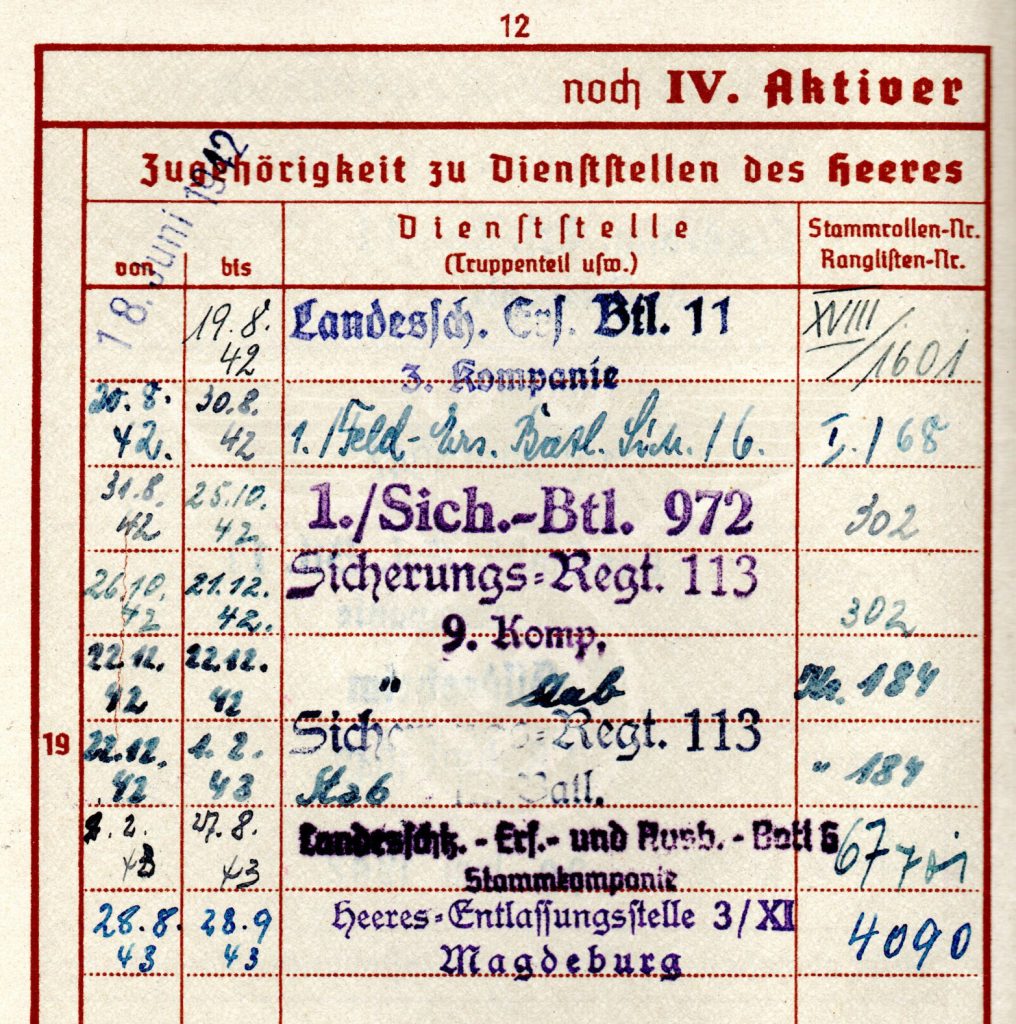
Krinscher’s initial training lasted almost exactly two months. He was then assigned to a field replacement unit, during which time he was transported to his first field unit. On August 31, 1942, Krinscher was assigned to 1. Kompanie, Sicherungs-Regiment 113. This unit was at this time assigned to the 285. Sicherungs-Division, engaged in anti-partisan activities in the northern sector of occupied Russia, in the rear area of Army Group North. In October, 1942, Krinscher’s bataillon was redesignated as III. Bataillon, Sicherungs-Regiment 113, and he would remain in this unit, in Russia until the beginning of February 1943.
During Krinscher’s time in Russia with the 285. Sicherungs-Division, the unit was extremely active in combating the Soviet partisan movement. The war diary of the 285. Sich. Div. is not extremely specific about the day-to-day activities of Krinscher’s particular Kompanie during the time he was there, but enough information was recorded to give an idea of his activities. For example, in September 1942, the area of the Division was threatened by multiple partisan bands that ranged in strength from 100 to 300 men. The important railway lines in the sector were being blown up almost daily by enemy parachutists with explosives. The Division was ordered to destroy these partisan units starting on September 15. As part of this action, the 1. Kompanie, Sich, Btl. 972, of which Krinscher was a part, and based at that time in Lsi, was tasked with performing reconnaissance on the road between Nikolajewo and Malyy Utorgosch, in order to establish the location of partisans that had used this road to move to the northeast. Some parts of the Kompanie were to be deployed to the area of Lug, to prevent partisans from escaping into the swamps north of Swad. Following this action, on September 24, Krinscher’s Kompanie was assigned to Feldkommandantur 189, to be used as needed. Feldkommandantur 189 was at this time itself subject to a constant series of partisan attacks, and was organizing countermeasures. In the five days between September 26 and September 30, Feldkommandantur 189 dispatched 3 large detachments tasked with pursuing and destroying partisan bands that were said to number between 30 and 100 men each. Three attempts to blow up railway lines were prevented in this time, with explosives being captured; one such incident resulted in a brief firefight, after which the partisans fled into the woods. Four locals, of whom three were women, were executed in this period for aiding partisans.
On October 26, 1942, Krinscher’s Bataillon was redesignated, becoming the III. Bataillon of Sicherungs-Regiment 113, still active in Russia. He remained with Sich. Rgt. 113 until the beginning of February, 1943, at which time he was sent back to Germany, to Landesschützen Ersatz und Ausbildings Bataillon 6. An entry in the Wehrpass notes that Krinscher had participated in the “Campaign Against Soviet Russia” from August 31, 1942 to February 1, 1943. He earned no awards and never got any rank promotions.
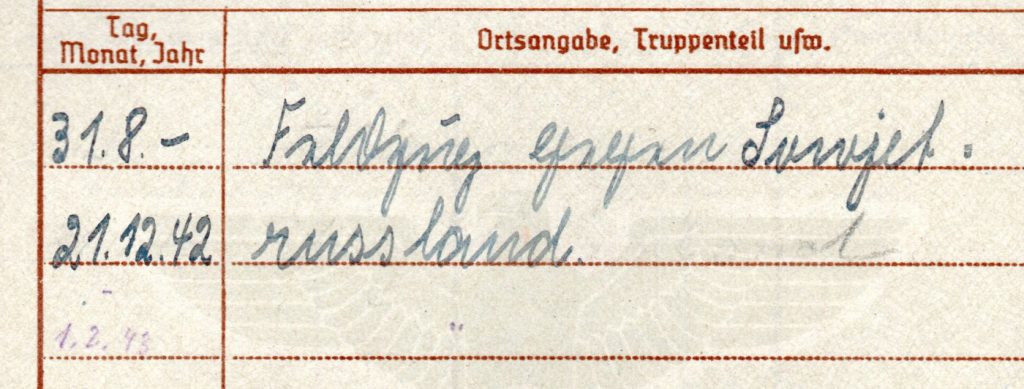
It’s not clear why Krinscher was sent back to Germany. The units he was with after December 1942 don’t seem to have made the standard entries in the Wehrpass, which is not unusual. It’s likely that he had become sick in the bitter winter of northern Russia. In September 1942, Krinscher was discharged from the Wehrmacht for medical reasons. He had issues with both lungs, and was no longer deemed fit for medical service. He had spent about 15 months in the German Army, had been deployed for five months, and never did get any rank promotion.
